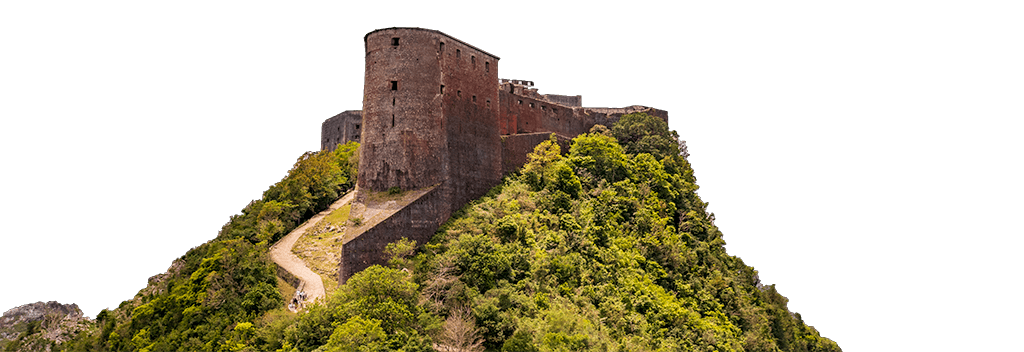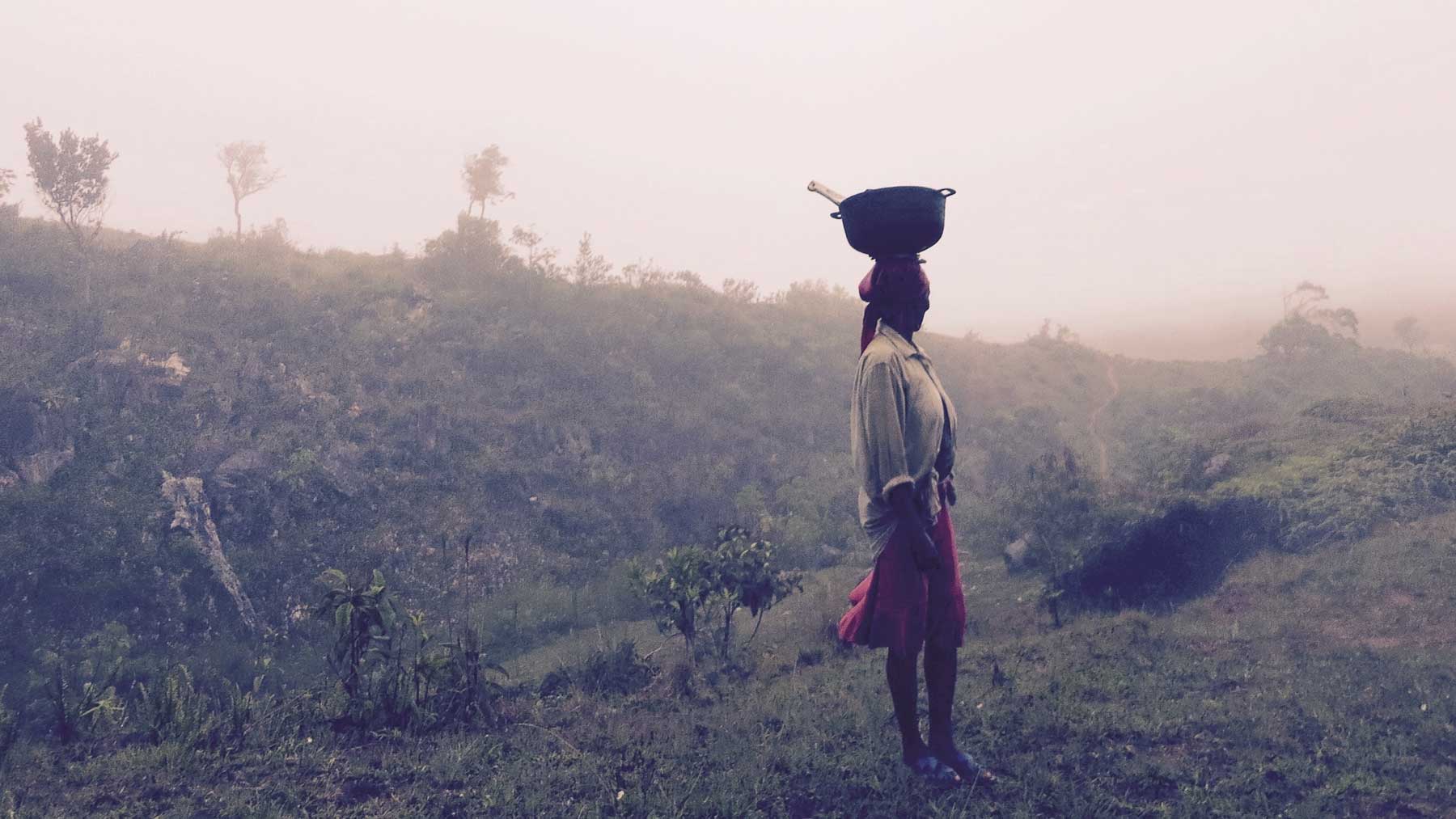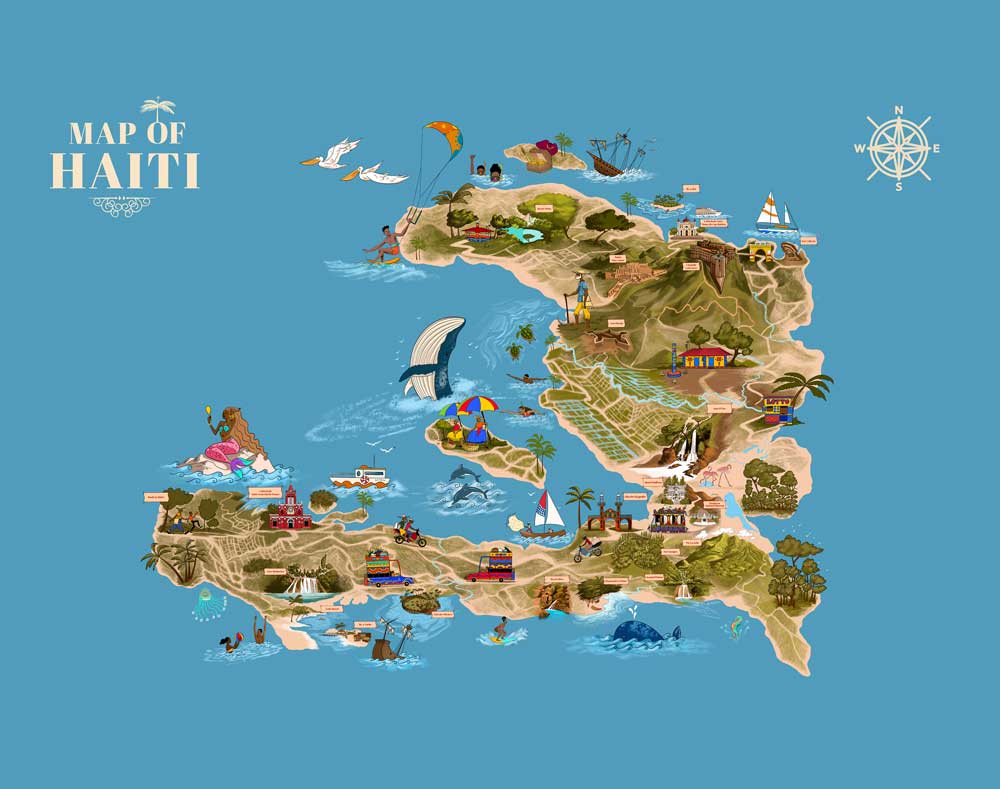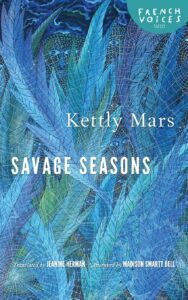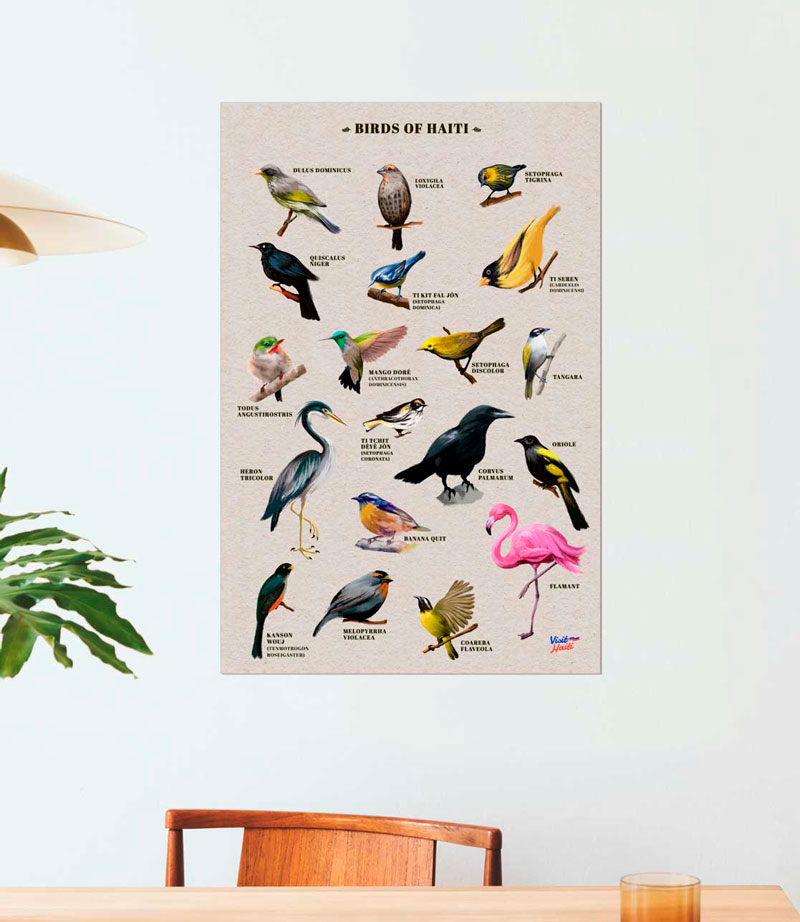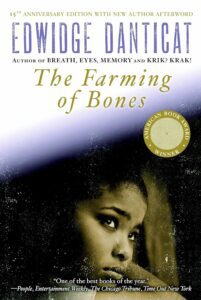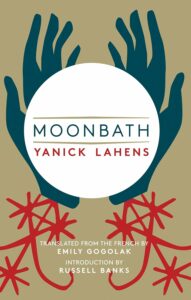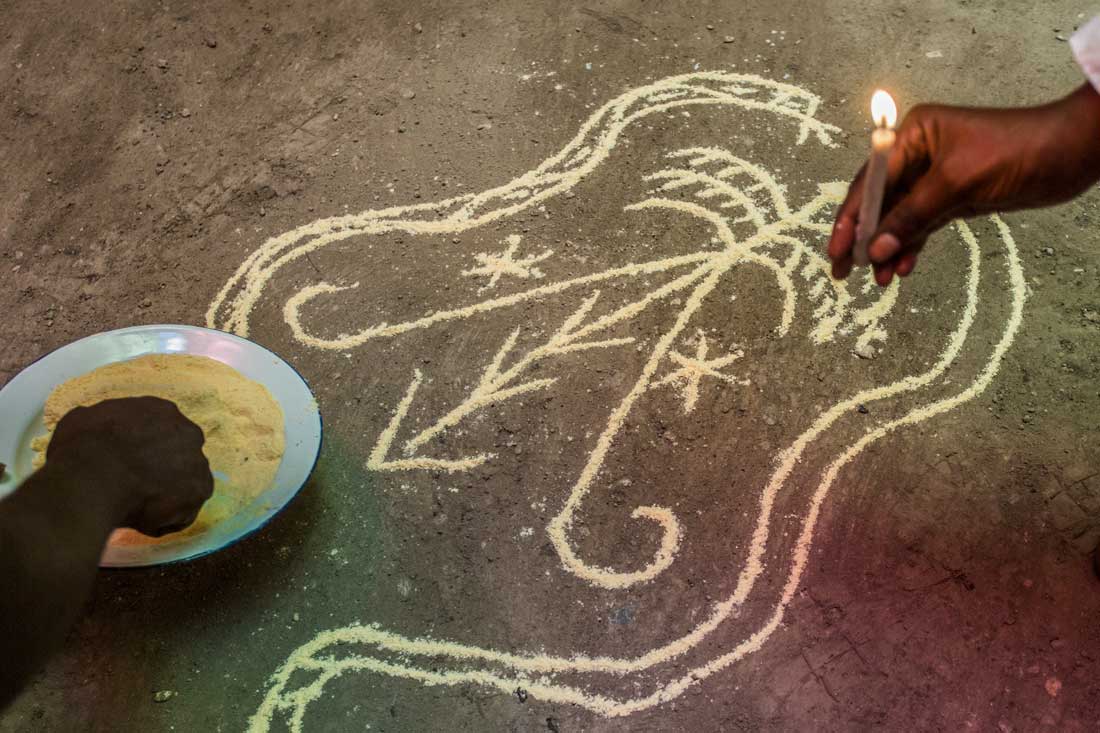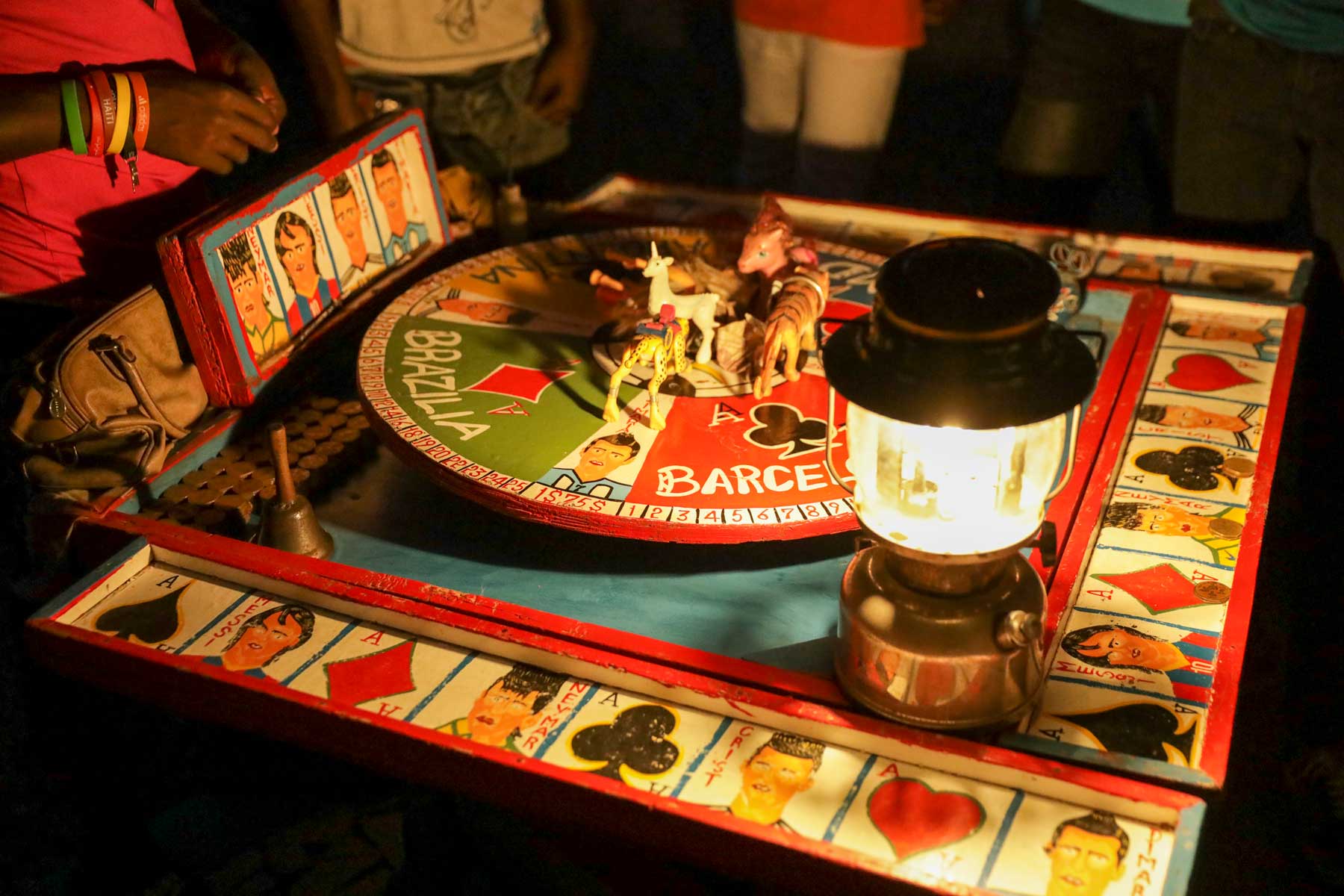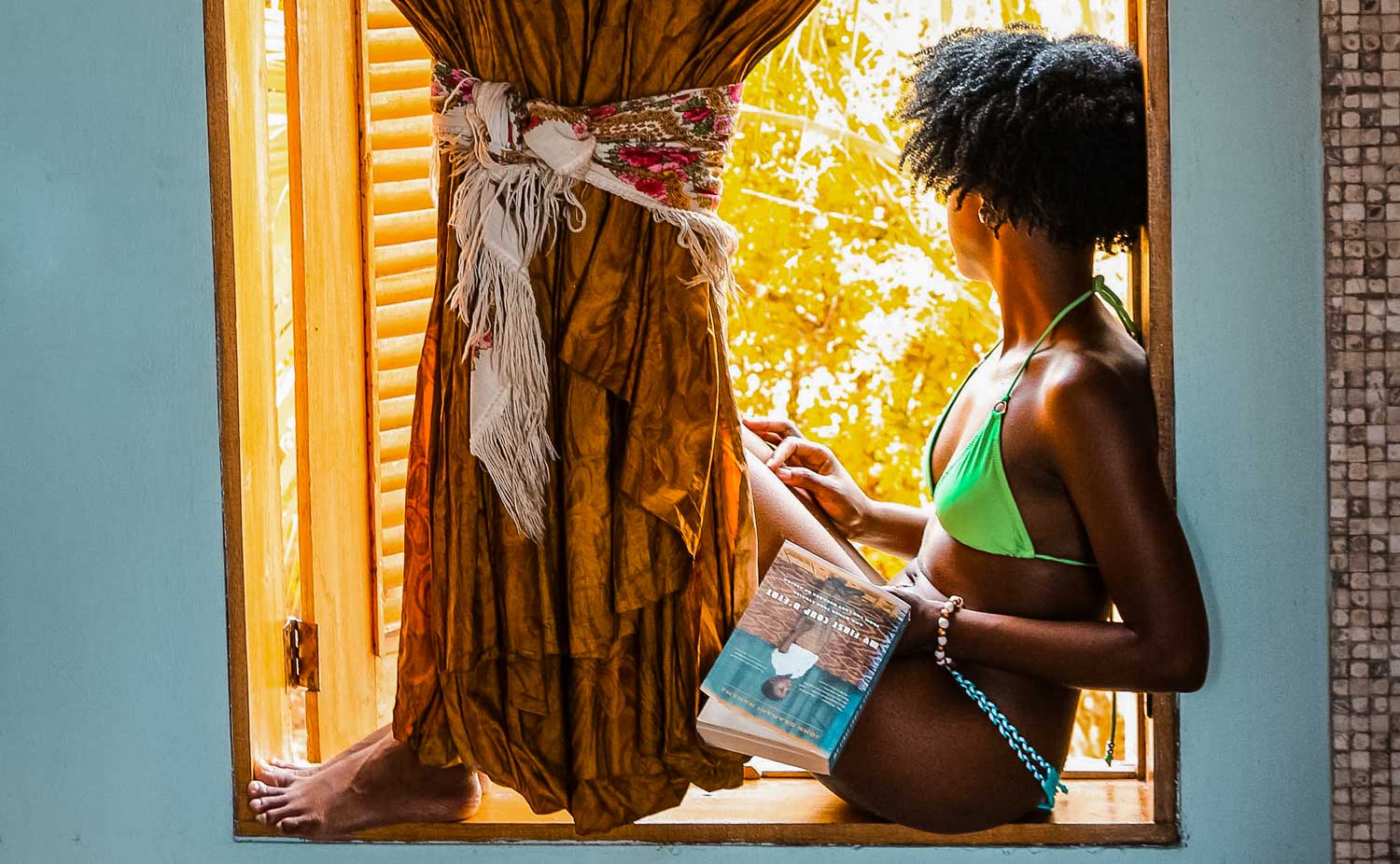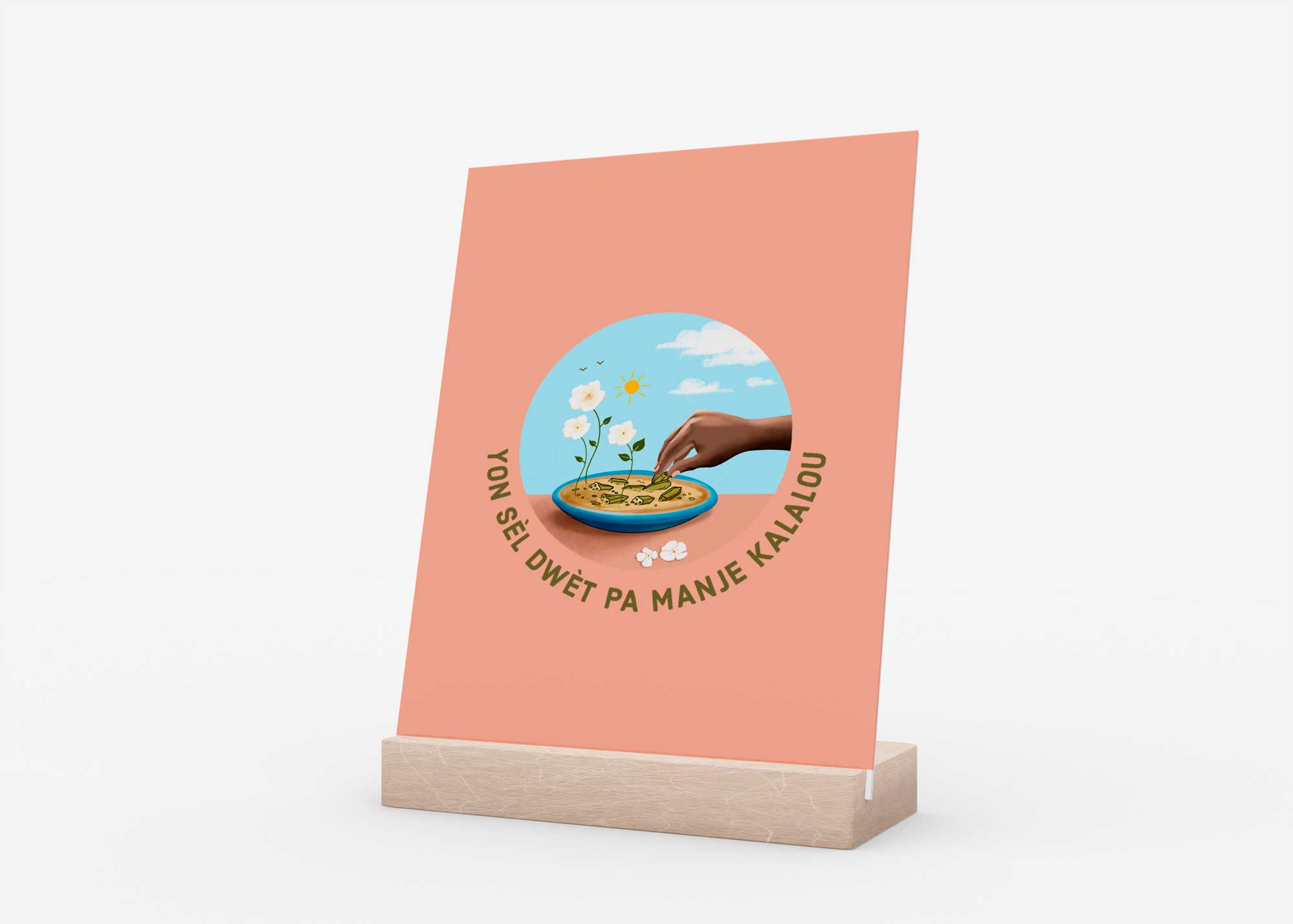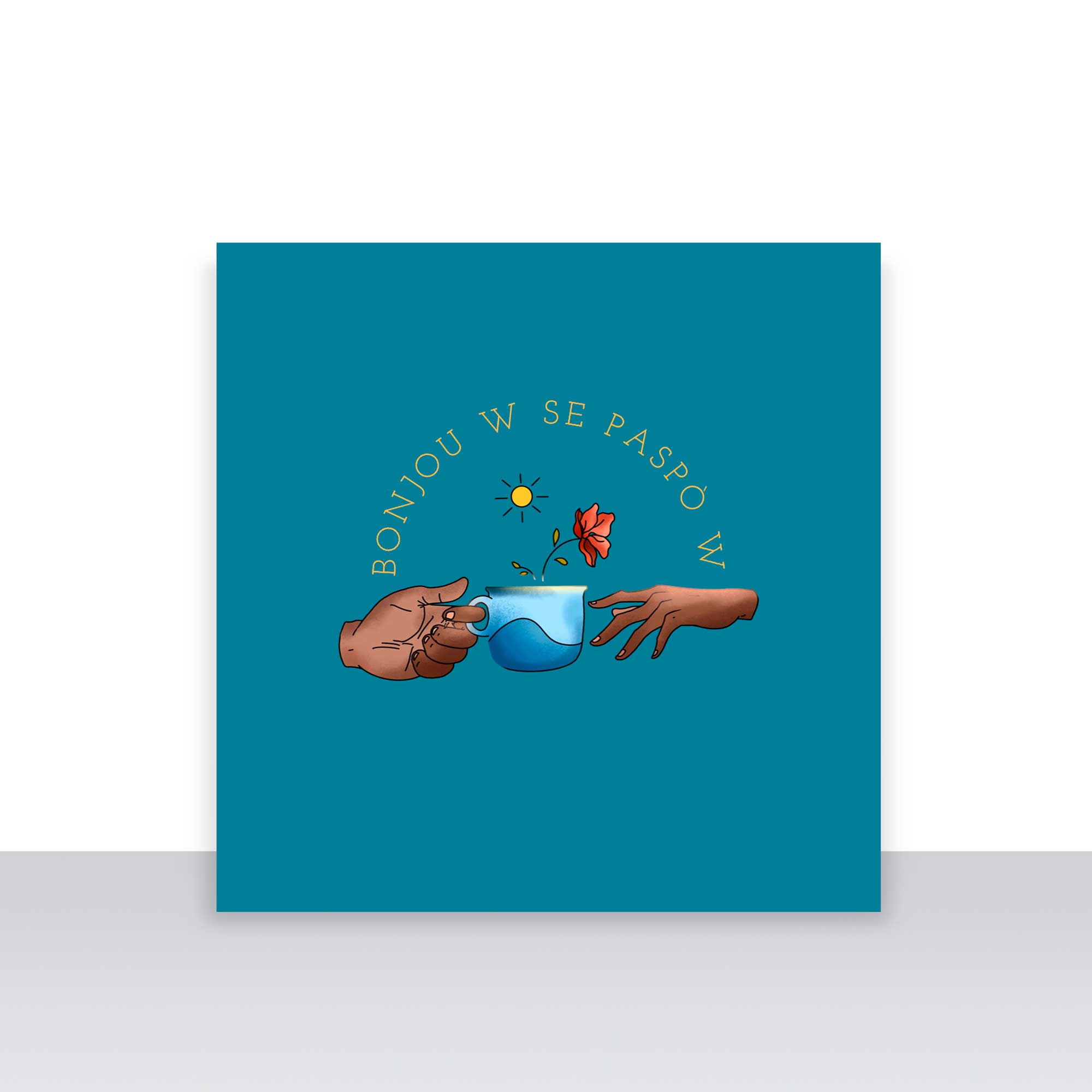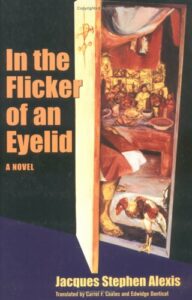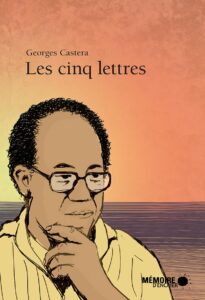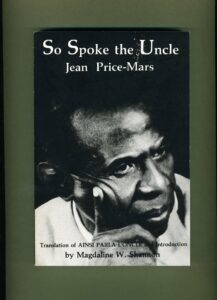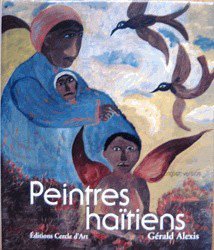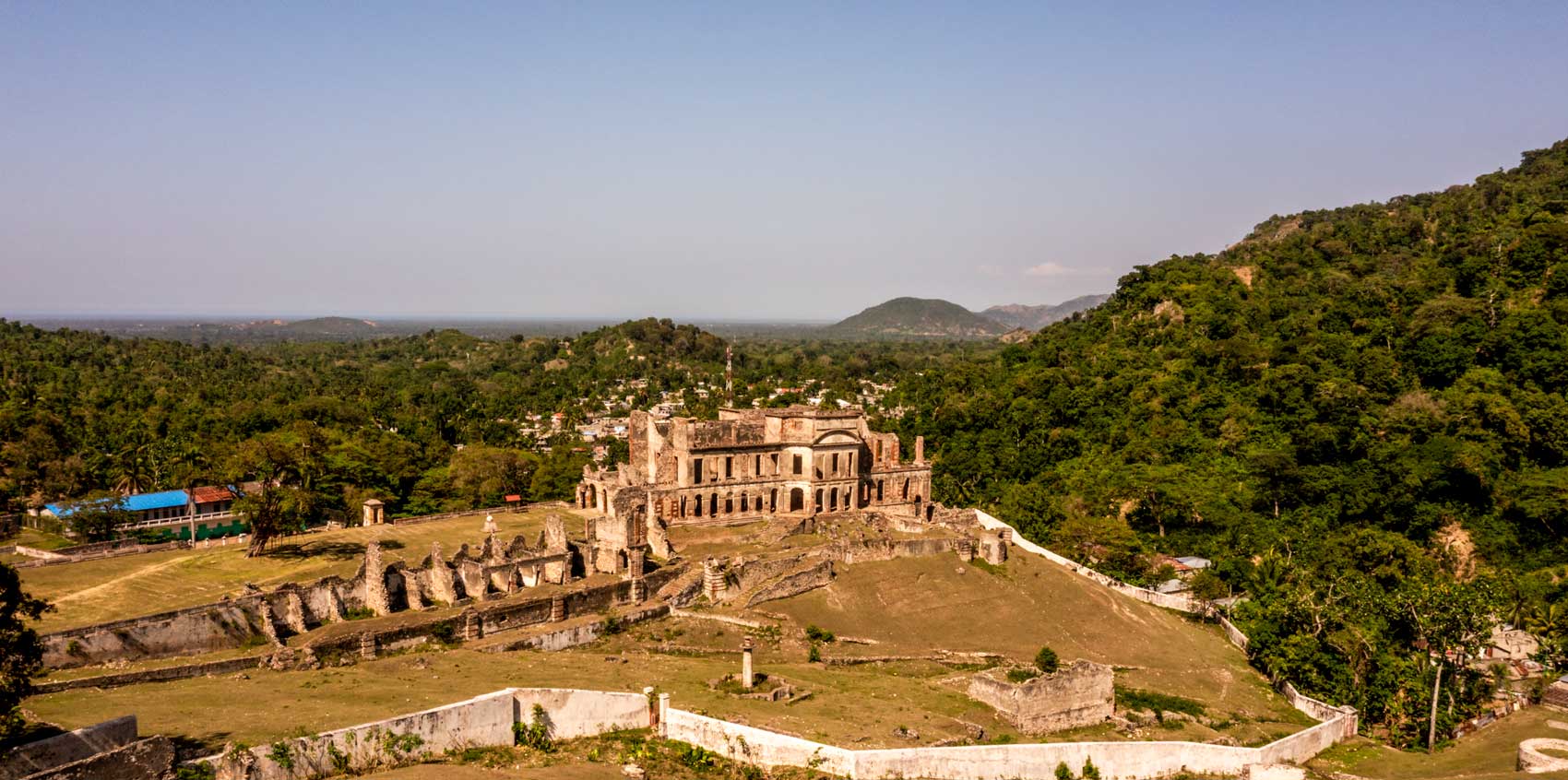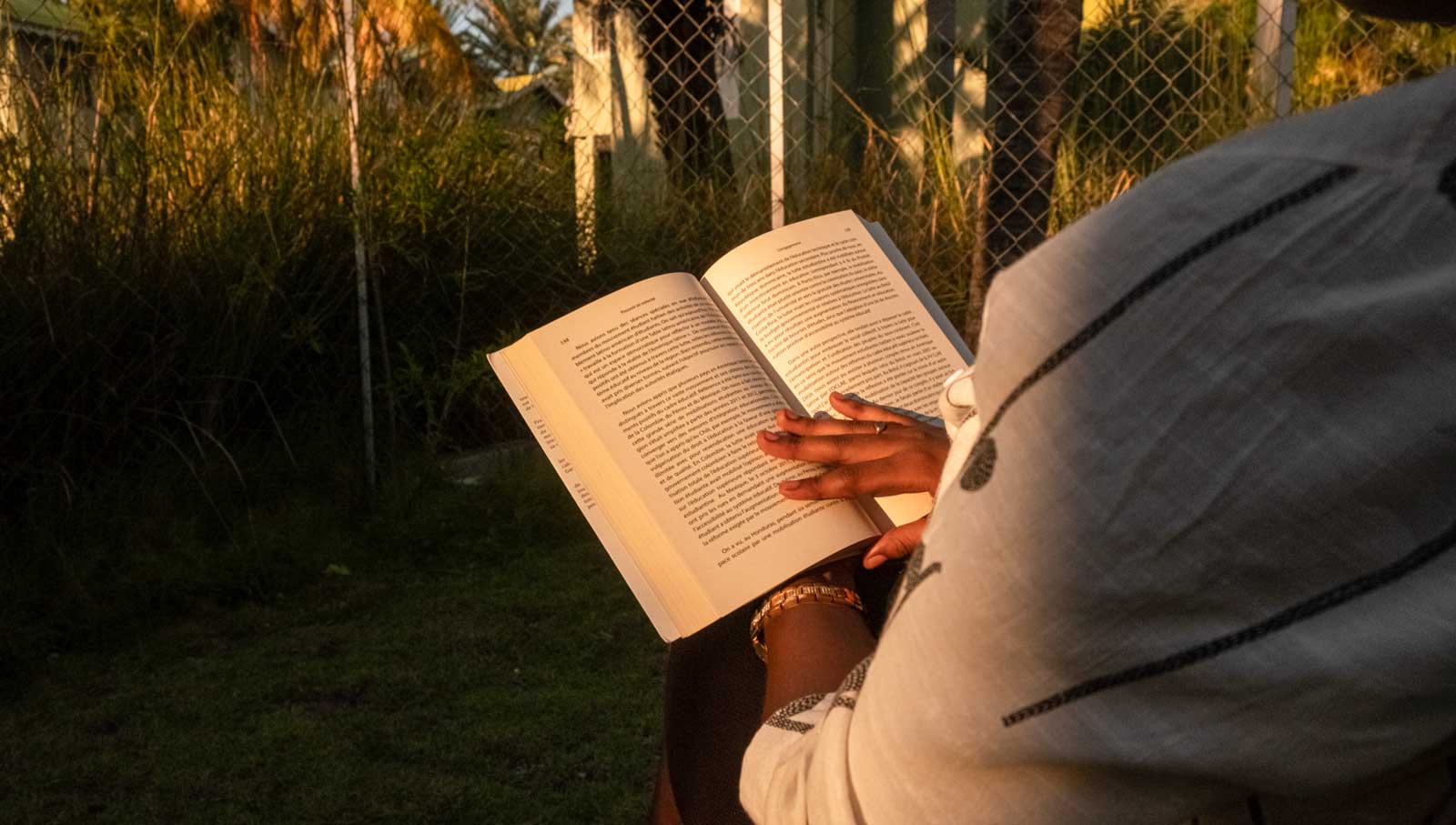
Photo: Jean Oscar Augustin
The Seven Best Books about Haitian Vodou
Dive into the mystical realm of Haitian Vodou with these seven must-read books!
The Occult Arts and Esoteric Sciences have experienced a resurgence in popularity in recent years, igniting a fascination with ancient rituals, mystical circles, and practices such as divination, spells, and fortune-telling. Haitian Vodou is not immune to this trend, but separating truth from fiction can be difficult amidst sensationalized adaptations in media and literature.
Vodou is a complex system of rites and beliefs that has been shrouded in mystery for centuries, often mistakenly labeled as witchcraft or black magic. Unlike other spiritual practices, there is no central sacred text in Vodou, and its secrets are passed down through oral tradition and guarded by initiated practitioners. Despite this, there is a rich body of literature available, including works on Vodou cosmogony, personal accounts of initiates, and anthropological studies.
Join us as we explore some of the best books on Haitian Vodou, providing a window into this ancestral spiritual practice and its enduring mysteries.
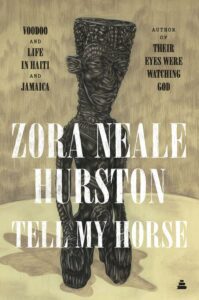
Tell my horse; Voodoo and life in Haiti and Jamaica
If you are new to the world of Haitian Vodou “Tell My Horse” by Zora Neale Hurston should be at the top of your must-read list. Despite some criticism that it’s cynical due to its straightforward descriptions, this perception is largely rooted in the historical context in which it was written and is in contrast to other works on Vodou from the same era.
The author takes the reader on a journey of true immersion into the culture and traditions of Haitian Vodou and the Maroons of Jamaica. Hurston’s commitment to honesty and respect for Afro-descendant spiritualities, such as Vodou, make her story authentic and highly regarded by critics. The book sheds light on the complexities and mysteries of Vodou with the clear intention to provide an honest perspective.
The title of the book, “Tell My Horse,” refers to the act of possession by a Loa (spirit), where a person is referred to as the “horse” of the Loa. Despite the intricate subject matter, including the secret societies of Vodou, the phenomenon of zombification, and the mysterious nature of mystical trance, “Tell My Horse” remains a definitive reference on the topic of Vodou in Haiti.
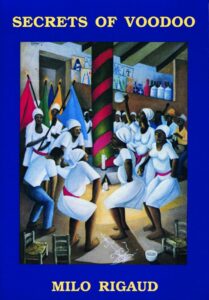
Secret Voodoo
Most of Milo Rigaud’s literary work is dedicated to decoding the mysteries of Haitian Vodou. Throughout the book “Secret Voodoo”, he explains in detail the symbolism hidden in the ritual practice of Vodou. So if you’re seeking a deeper understanding of this complex and ancestral religion, “Secret Voodoo” is your perfect resource.
The book traces the African roots of Haitian Vodou. It provides in-depth explanations of the principles of the Loas, the various components of a Vodou temple, the initiation process, and the role of each adept. Rigaud offers a comprehensive look at Vodou, providing readers with a complete understanding of its rituals and practices.
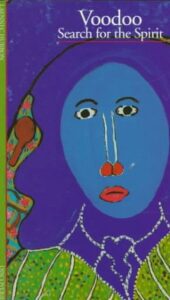
Voodoo: Search for the Spirit
Published by Gallimard in 1993, “Voodoo: Search for the Spirit,” is a comprehensive exploration of Haitian Vodou by Laënnec Hurbon. The book provides insights into the intricate link between Vodou and Haiti’s social and political life, offering a deeper understanding of the religion’s impact on the country. The text is accompanied by beautiful illustrations that help readers grasp the cultural dimension of Vodou and how it has influenced the beliefs, lifestyles, and imagination of the Haitian people.
The author traces the evolution of Vodou from the arrival of enslaved Africans in the colony of Saint Domingue (present-day Hispaniola) to the various campaigns of persecution it has suffered. Laënnec Hurbon is a renowned expert on Haitian Vodou and “Voodoo: Search for the Spirit” is an essential read for those interested in learning more about this fascinating belief system.
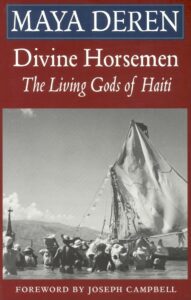
Divine Horsemen : The Living God of Haiti
This account by Maya Deren is like an intimate conversation with the most sacred mysteries of Haitian Vodou. The book was initially intended to be a film about Haitian folk dance featuring the famous dancer Katherine Dunham. The two women were quickly enchanted by the sacred meaning behind the dance steps performed to the sound of drums during Vodou ceremonies.
Dunham eventually made Haiti her home and her residence in Port-au-Prince became a hub for Vodou ceremonies. Meanwhile, Deren gave us a powerful account of this spiritual practice in her book, “Divine Horsemen.” In it, she masterfully explains the cosmogony of Vodou and the role of the living gods in the lives of the initiates.
This exceptional work is considered one of the best books written on Vodou. Through her writing, Deren provides insight into how the ancestral spirituality of Vodou allows individuals to connect with the divine through the mysteries and Loas (spirits), becoming one with them as their mount, their messenger, and their living temple.
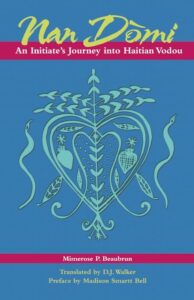
Nan Domi
Mimrose Beaubrun, lead singer of the popular Haitian roots band BoukMan Eksperyans, offers a true initiation into the world of Vodou in her book “Nan Domi”. The author transports the reader to a fascinating universe, both disorienting and intriguing, a state of spiritual awakening she paradoxically calls Nan Domi, literally meaning in sleep or in dreams.
In this narrative, Beaubrun shares her perspective as an initiated Vodou practitioner. Taking the reader along on her own spiritual journey, guiding us through each step of her initiation process in the sacred places of Vodou, commonly known as Lakou. She also shares part of the teachings she received from her mentors in her book.
If the account is reminiscent a dream at many points, it is because it is a crucial aspect for the understanding and awakening of spiritual insight as described by Beaubrun. If you are drawn to the idea of a Vodou initiation, this book is for you.
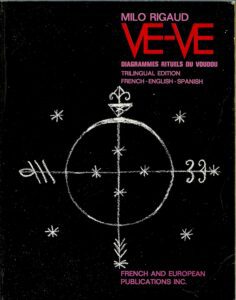
Ritual Voodoo Diagrams
Are you familiar with the hidden symbols and ritual diagrams used in Vodou? Many esoteric practices employ symbols and geometric shapes as a tool for meditation or incantation. However, the cosmograms of Haitian Vodou – known as vèvè – stand out for their intricate design, beauty, and mode of creation.
“Voodoo Diagrams” by Milo Rigaud provides a comprehensive guide to the secret of these ritual drawings. The author delves into the origins of the vèvè and their Kabbalistic significance, offering a detailed explanation of each aspect of the diagrams. Unfortunately, the book has been out of print for a while, but buying a used copy is still possible.
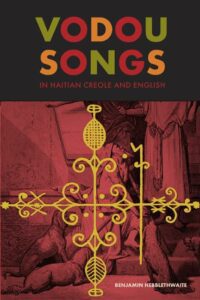
Vodou Songs in Haitian Creole and English
Singing holds a significant place in Vodou rituals, serving as a form of prayer to the gods of Vodou. A well-known Haitian saying summarizes this role of singing, “chante se priye de fwa,” meaning singing is like praying twice. The songs sung by the hounsis, or initiated practitioners of Vodou, form a unique language with the rhythm of drums to prepare for the arrival of the Loas during possession trances.
This tradition has been passed down through generations by word of mouth. “Vodou Songs in Haitian Creole and English” by Benjamin Hebblethwaite offers a comprehensive overview of this rich repertoire of sacred songs, providing both the original Creole lyrics and their English translations.
Written by Costaguinov Baptiste.
Published March 2023.
Explore More of Haiti’s Art & Culture

Paradise for your inbox
Your monthly ticket to Haiti awaits! Get first-hand travel tips, the latest news, and inspiring stories delivered straight to your inbox—no spam, just paradise.





